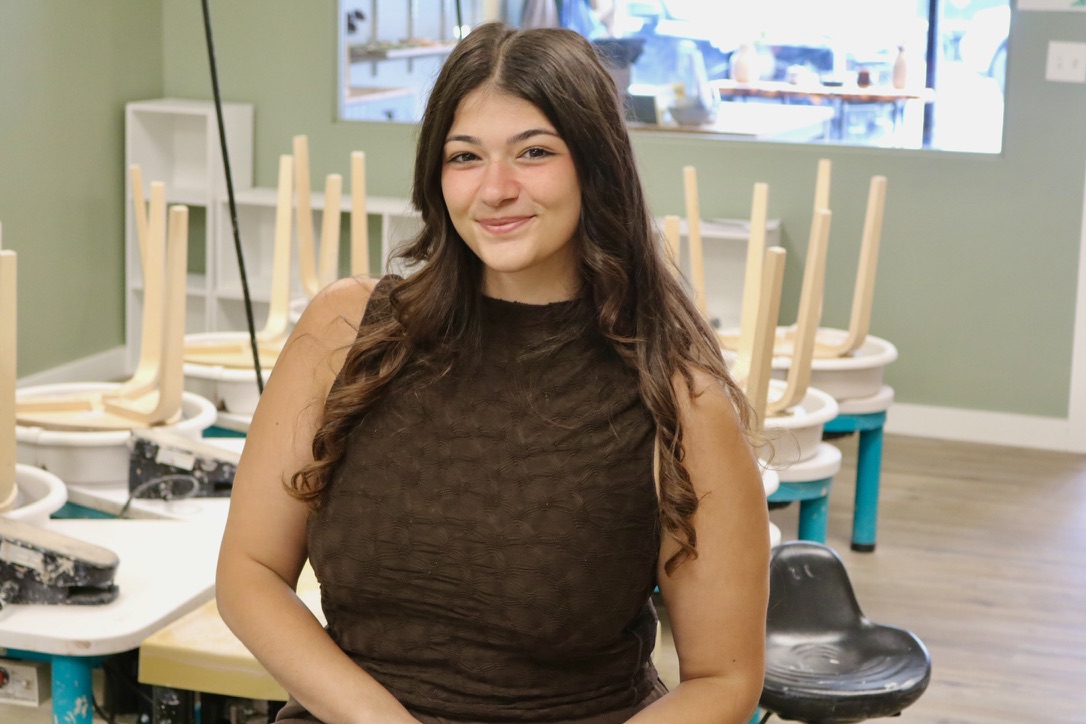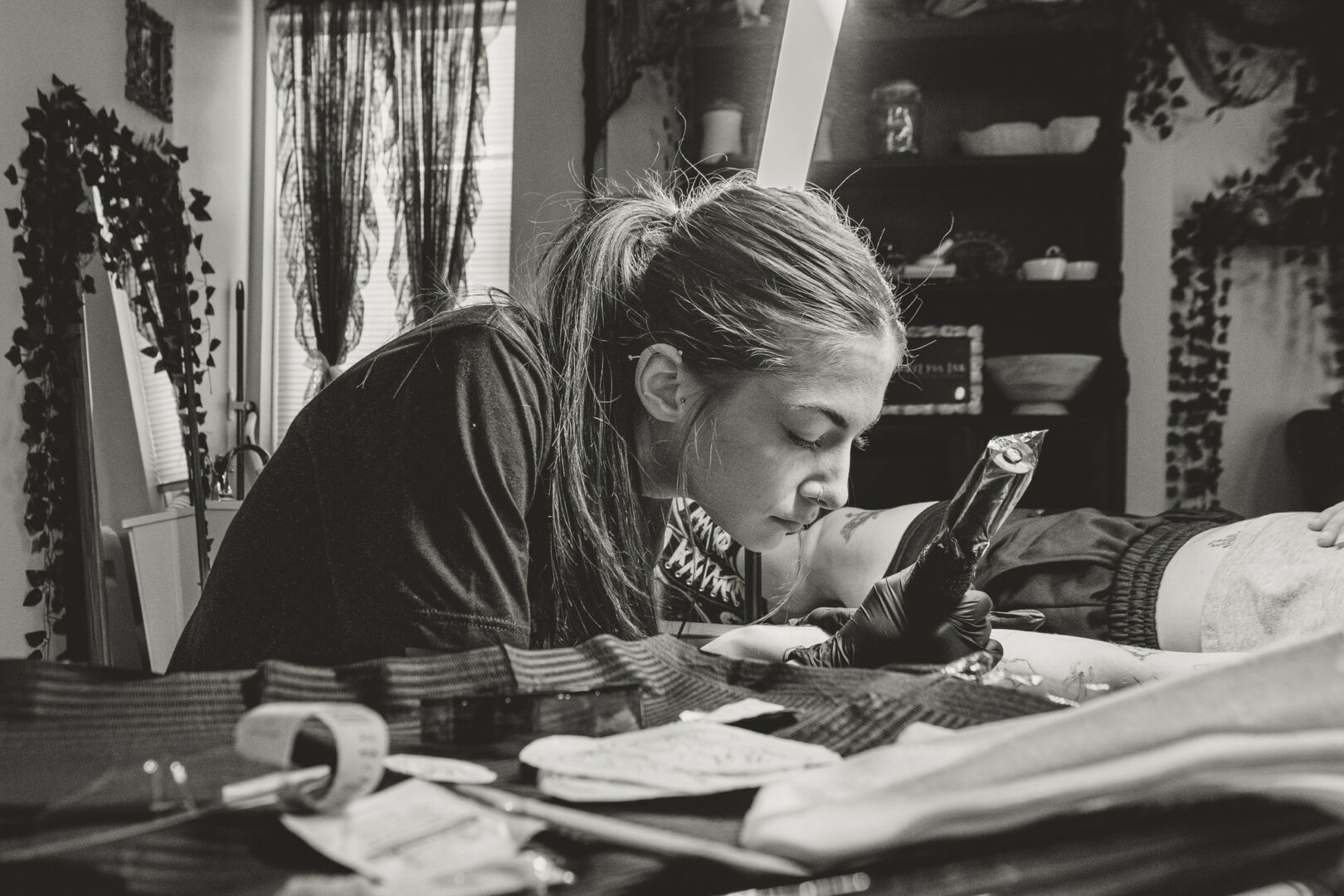We caught up with the brilliant and insightful Luca Valentine a few weeks ago and have shared our conversation below.
Hi Luca, so happy to have you on the platform and I think our readers are in for a treat because you’ve got such an interesting story and so much insight and wisdom. So, let’s start with a topic that is relevant to everyone, regardless of industry etc. What do you do for self-care and how has it impacted you?
Anytime I sit down with a client to talk about selfcare, I define selfcare as anything that helps to restore ‘spoons’. This is just a metaphor for mental, emotional, and/or physical resources that originated in the chronic illness community. The things that take spoons are things like work, chores, even things we enjoy like being with friends can take spoons. The things that restore spoons are sleep, hydration, nourishing food, movement, etc. The things that have helped to maintain my self-care are boundaries, therapy, and an unreserved acknowledgement of what I need to rest and feel well.
Boundaries (which is my favorite B word) help to mark the borders of where my time and space end and begin whether that’s with clients, family, friends, or partners. When I’m working, whether client-facing or non client-facing, I put as much of myself into that as possible. Then, when I shift to a different part of my life, say home life and chores, I put myself all into that. When I attend to one section of my life in a dedicated manner, it helps me feel like I can show up the way I want to in other areas. When I’ve shown up as a friend to someone I love, I can then focus that much better on my clients because my work won’t feel at odds with my personal life. I can also tell which relationships to nurture or separate from based on how my boundaries are respected.
Therapy is the one hour I take completely to myself once every 1-2 weeks and over my time as a social worker, I’ve worked a few different therapists. My current therapist shows up to help me trouble shoot my coping skills, reframe a thought or event when my brain is struggling to do so, and unpack any traumas that have occurred in my life. My therapist fantastic and I don’t think I could do the kind of intense work that I show up for, without her support. This also useful since my line of work engages a great deal with trauma, both primary and secondary. Primary trauma is the thing that happened directly to the person, usually a client that I’m working with. Secondary trauma is the lingering affect that hearing about that trauma can cause. For that reason, I recommend most mental health providers have their own therapist. I know that for me, it helps me to show up that much better for my clients and my loved ones when I’ve unbordened my brain.
Lastly, I had to learn to acknowledge unreservedly what my self-care needs were. I was diagnosed autistic a few years ago and prior to that I had been diagnosed with ADHD in my early childhood. It was outstanding to be diagnosed with ADHD for my gender in the 90’s and yet our expertise had only come so far. Now as an adult, I’ve learned how to cope with my neurodivergence in ways that don’t put me at odds with my brain. I’ve created systems to learn, remember, and compartmentalize things that look different from my neurotypical peers and that’s fine. I used to feel shame when I would take long periods of time to myself. I thought I should be able to do everything and show up for everyone.

Thanks, so before we move on maybe you can share a bit more about yourself?
When I formulated the first concepts for my practice, I thoughts I’d singularly do therapy and only with a small population and that would be it. As I approached graduation from my graduate program, I realized that the vast landscape of the social work profession was varied and not as flat as some might think. There are social workers in schools, large libraries, and the military. Social workers all on their own wear a ton of hats whether that’s connecting their clients with resources, providing education, or doing in home therapy with a family…there is SO MUCH! Some social workers provide care to a very small medically acute population like HIV/AIDS patients or folks on dialysis. Some social workers do harm reduction work with folks seeking substance use recovery while others work in community service boards to connect folks with supportive services like food stamps.
As a solo practice owner, I get to wear a lot of hats. I help connect my clients with resources for hurricane relief, food insecurity, clothing closets, etc. I educate other providers and orgs on how to best work with neurodivergent and/or queer folk, with eating disorders and/trauma histories. I network and help spread the word about various providers, programs, etc. I get to do marketing which means indulging in a bit more of my creative side. As a result, my week to week and even day to day can look very different; tabling at Pride, speaking at DragonCon, networking at the High Museum with the Adolescent Resource Collective.
I also think it’s important to give away things for free whenever possible. I give away consultation time to providers who are new to the field as a way to give back to the profession. I give away gender consultations and letters to access gender affirming care as a way to give back to my community. Especially in this economy which is hitting the financially marginalized the most, I think it’s important to consider how we can support our neighbors whether they are our clients, our community members, students, etc. And I think it’s important to have radical empathy so even if we can’t understand the experiences or struggles of someone else, we still show up with compassion.
Looking back, what do you think were the three qualities, skills, or areas of knowledge that were most impactful in your journey? What advice do you have for folks who are early in their journey in terms of how they can best develop or improve on these?
The three biggest things that have led to my success have been my creativity/adaptability, lived experience, and tenacity.
I think my creativity goes hand in hand with my ability to adapt. I looked at the landscape of my profession, took note of what services already existed, and then foudn a way to make services a little different. I also discovered ways to expand or having once only worked with queer folk with eating disorders. Now I’ve added more age ranges, neurotypes, race, and faith identities to my compendium. There were some things I started out with like in-home services. This is something that most providers don’t offer, but I think that leaves a wide open market for that service. Similarly, I think clinicians that are coming into the field will find other methods of inovating and providing care. Some providers have tik toks, youtubes, books, workbooks. Others do DnD therapy or gameplay therapy which means folks are incorporating game play and technology into therapuetic practice I can’t wait to see what folks will come up with next.
Lived experienced has led to me showing up as a much more effective mental health provider. Lived experience is simply the ability to understand someone’s experiences due to having lived that experience. For example, I have lived experience as a non-binary person and this allows me to work very effectively with other non-binary people as a mental health provider. Having lived experience as a neurodivergent person in the public school system has helped me to show up for my adolescent clients who are now having to contend with that same educational experience. This helps so much with the work, because rather than a client having to educate me on their experience, I already have it and we can move straight to finding solutions. I remember when I first started transitioning in the late 2010’s, I had to educate most of the medical providers I was seeing about my care a transgender person. And I was told as transgender person on at least one occasion by a physician that I might want to find a different doctor because she usually worked with “normal people”; what she meant was cisgender, but that told me everything I needed to know. These things can hurt and cut deep, but they can also equip us with knowledge to better guide the next medical provider or trans client we interact with.
Tenacity would be the last thing that has thus far set me apart. I have had the same vision since 2006 and now 18 years later, it’s come to fruition. I always knew I wanted to set up my practice to work with transgender adolescents and that dream was the seed that has now grown into something more. Now, I get to help a variety of different people with various concerns and comorbidities and I’m excited to see what door will open up next.
Tell us what your ideal client would be like?
The client that works well with me is one who is queer and neurodivergent with an eating disorder and/or trauma history. This could include organizations that want to better tailor their services to transgender and/or neurodivergent folks.
Expanding on this very dense profile, I work best with folks who are neurodivergent; specifically ADHD and Autism. Whether folks are diagnosed as kids or adults, I enjoy helping folks develop their coping skills around their brain rather than against their brain. Just as I’ve dealt with internalized ableism, so too do many other neurodivergent people. Quite often our brains are said to be the issue; when we can’t sit still in class or a meeting, seemingly random sounds or lack coordination, we are framed as the issue rather than the world our brain inhabits.
I work with all variety of queer folks of all ages; however I only work with adolescents who identify as transgender. This intersection of age and gender identity makes this group of kids particularly at risk for eating disorders, substance use, non-suicidal self-injury, and much more. That has nothing to do with a kid being trans, but rather how hostile the political landscape is to tans youth. I reserve all adolescent spots on my caseload for trans kids for this reason. Their care needs to be as nuanced and robust, and I bring that expertise to the table when working with these kiddos and their families.
Family therapy is a category of care all it’s own that I’m especially passionate about. Families will seek me out for therapy as a way to understand their trans (and sometimes neurodivergent) kiddo’s journey. When kids come out as trans there are a myriad of responses that they receive and for parents it can be a confusing time. Parents may mourn the loss of expectations that they may have had for their kiddo. Some parents don’t require support in the acceptance, but rather in advocacy with schools and doctors. It can be hard to know all the best ways to support a kid who’s transgender in the modern sociopolitical landscape.
I work with a lot of what I like to call ‘ineffective coping skills’. These are behaviors that we develop to survive difficult situations that leave us feeling out of control. These skills look like substance use, eating disorders, non-suicidal self injury, etc. These skills are ineffective because they result in long term health concequences, so my work is to help clients develop effective coping skills to slowly replace the things that kept them going for so long. The process of healing and developing new coping strategies isn’t linear; it is a messy, uphill trudge of a journey. I work well with many of these ineffective coping skills, it just happens to be that I specialize in eating disorders in particular because the relationship to food and identity is so prodound. Food and eating can be tightly linked to large family expriences or lonely binge eating.
Restriction of food related to religious identity is vastly different than someone who sees food as a method of self injury; eating so much or so little as to make themself feel sick.
The last part of this description regards trauma history which most people have in some form or fashion. Trauma can be a Big T Trauma like natural disaster, assault, homelessness, or poverty. Then there are small t traumas: infidelity, social ostracization, sudden move for work or school. A trauma is anything that leaves a lingering mark on the psyche after the danger or uncertainty has passed. The traumas that I work best with are family of origin neglect or abuse as well as religious trauma and trauma from marginalization; ie transphobia, ableism, etc.
Contact Info:
- Linkedin: https://www.linkedin.com/in/luca-valentine-lmsw-7bb7864a/
- Other: https://www.psychologytoday.com/us/therapists/resilient-wellness-llc-atlanta-ga/761014
so if you or someone you know deserves recognition please let us know here.




